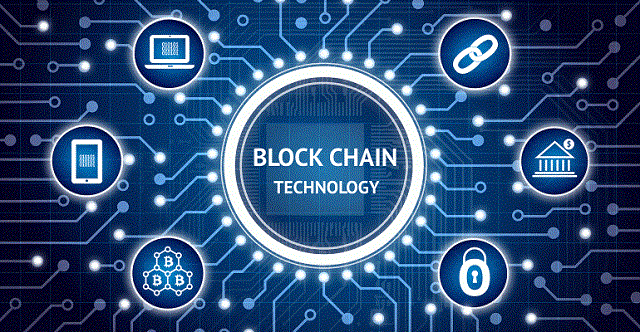Blockchain in Cloud Computing – Can it be a Game Changer for your Business?

Ginni Rometty, the CEO of IBM, has rightly said,
Blockchain will do for transactions what the internet did for information.”
And it is proved by the fact that blockchain solutions worldwide are expected to grow from 4.5 billion U.S. dollars in 2020 to an estimated 19 billion U.S. dollars by 2024.
You must have heard about the most disruptive innovation, “blockchain technology,” which has rapidly evolved and gathered most media attention over the past few years.
Yes, you guessed it right, we are talking about the technology that sparks multiple industries with the boom of digital money related to cryptocurrencies, like Bitcoin.
The technology makes big firms create their cryptocurrency, secure cloud migration of businesses, build distributed ledger technology, and do much more.
Not only these, but the incorporation of blockchain in cloud computing technology also has the potential to create a decentralized system that secures massive data and ensures faster availability, and easy traceability of the records.
It allows organizations to leverage the benefits of both blockchain services and cloud computing at once.
This article discusses the benefits, use cases, and blockchain implementation in cloud computing.
Benefits of Implementing Blockchain in Cloud Computing
The merger of blockchain and cloud computing brings many opportunities for businesses of every kind. Let’s see how companies can enhance their business workflows and productivity with blockchain and cloud collaboration.
1. Improve Data Security
By implementing blockchain with cloud computing, you can ensure data security and transfer with point-to-point encryption. Blockchain is a disruptive power that helps smooth the functioning of data transactions and the sequence of transactions. Integrating with cloud systems provides third-level protection to distributed data storage, and it eliminates data leakages and splits data files into fragments stored in various nodes across the globe.
2. Provide Access to Decentralized Systems
The custom of using the centralized system for managing data and making strategic business decisions is a relevant problem when implementing cloud computing. The centralized server may cause disruptions like the failure of the server or loss of crucial data stored. With blockchain implementation, you can create multiple copies of the same data stored on various computer nodes, eliminating failure.
As databases are geographically-diverse cloud storage, getting access to an official copy is faster.
3. Ensure Scalable Transactions
The number of transactions in blockchain networks can be huge when developing large-scale blockchain applications. You can have on-demand computing resources for blockchain operations due to scalability with cloud computing, and integrating blockchain with cloud computing provides you with a highly scalable integrated system.
4. Keep Track of Goods and Services
The majority of the logistics industry faces difficulties while tracking their massive goods in warehouses and even on delivery routes. It is cumbersome for them to track all vehicles in its network, their current locations, the number of goods they carry, destinations, and many others. They often face problems due to the centralized approach due to their architecture.
Blockchain with cloud computing assists companies in tracking the status of the shipments in real-time along with the authentic signature to ensure that the parcels are delivered to the respective destination. For instance, Ekart successfully implemented cloud services to provide real-time delivery status to their customers to get the latest updates about their parcels and when they will be delivered.
5. Facilitate Permanent Transactions Recording
Blockchain with cloud computing facilitates you with a permanent audit trail that records all your financial transactions, work events, product development phase, or financial ledger entry. One major benefit blockchain technology provides is proof of history (PoH). PoH provides you with a verifiable delay function, and it gives you a time record to the cloud computing network.
Use Cases of Blockchain Cloud Computing Integration
Today, most businesses strive to implement blockchain solutions into their work processes. Multiple international brands like Unilever, Walmart, Visa, etc. use blockchain technology and have gained enormous transparency, security, and traceability benefits. Blockchain technology’s benefits to multiple sectors help them revolutionize and redefine their business workflows.
Here listed are some use cases of blockchain cloud technology to help you make intelligent business decisions:
1. Healthcare-Managing Patient Records
Even today, healthcare groups store their sensitive information (patient records, testing samples, patient data, credit card details, and so on) in centralized systems, which ultimately leads to data loss and security issues. Blockchain technology has the potential to develop more innovative applications in the healthcare sector to create efficient healthcare data sharing environments, lowering the time needed for sharing communication from patient devices to doctors and amongst the connected devices.
For Example, the EHRs on cloud storage facilitates doctors to access patients’ medical records using their mobile devices (e.g., smartphones) to monitor health.
According to a Statista report, in 2021, 64% of the witnesses expected that the biggest cloud security concern was data loss/leakage.
2. Supply Chain- Faster Product Tracking and Data Transparency
Supply chain management is costly, but it helps boost your revenues and eliminate security concerns. Incorporating blockchain technology in the supply chain industry helps boost your revenues and eliminate security concerns. Cloud computing provides a secure platform, infrastructure, and faster deployment for the entire supply chain.
3. Banking- Reducing Processing Fees and Faster Payments
Initiating international payments is still a glitch for many of us, and it comes up with a tedious procedure comprising a set of endless steps to complete verification. But all thanks to blockchain technology that is helping in the faster payment process and high safety measures of transactions.
The distributed ledger allows you to handle payments once the transaction registers minimal risks. It helps streamline and accelerate the money transfer process enabled with high-security features.
4. Real Estate- Resolving Purchase-Sale Issues
When it comes to real estate trading, we all have witnessed it involves cumbersome paperwork, chances of fraud, property search difficulties, intermediaries, etc. With innovative blockchain solutions, you can solve this major problem quickly. Blockchain technology in real estate helps buyers and sellers purchase and buy properties rapidly without agents needing interference. Accessing Smart Contracts enables a secure and smooth transaction process, and it also supports asset tokenization with no intermediaries.
6. Manufacturing-Enhance Security and Remove Third-Party Interference
Blockchain contributes to the manufacturing industry by implementing smart manufacturing related to the deployment of automated machines that can perform specific tasks in innovative ways.
Blockchain technology solves the challenges faced by manufacturing units, including centralized industrial networks and third-party-based authority, leading to lower flexibility, efficiency, and security. The integration of blockchain in manufacturing has the potential to enhance security while implementing the decentralized architecture.
7 Simple Steps for Blockchain Implementation in Cloud Computing
As of now, you must have acknowledged all the benefits blockchain and cloud computing integration provides to your business. Now, let’s see how the implementation process takes place. Here are seven simple steps for blockchain implementation in cloud computing.
1. Identify Business Requirements First
Before getting into the details of blockchain implementation in cloud computation, let’s first identify your business requirements and the challenges you want to resolve or what to upgrade in your system or processes. Create a list of tasks or goals that you want to accomplish.
For instance, You may want to enhance your security one level up. Or want to build fully decentralized storage, improve your business performance, and boost the efficiency of the tracking system. You should know the answers to these questions to achieve your goals.
2. Consider and Estimate Data Volume and Applications of Usage
Today, most companies adopt blockchain technology to raise their business value. The accumulated data loads should be structured and well defined to retrieve concise and detailed information, helping enterprises reach their business targets and objectives. It will remove inefficient and useless data and keep your base clean with valuable resources.
3. Select Cloud Deployment Model for Migration
After estimating the data storage, it’s time to choose the suitable cloud model when implementing blockchain: public, private, or hybrid.
Public Cloud
In the public cloud, cloud providers own and manage computing resources. Here, the
cloud infrastructure is available to the public and dynamically applied by more than one organization.
Private Cloud
The private cloud satisfies single clients’ demands and provides them ownership of data and
security. You will deploy the infrastructure and applications on the enterprise’s own on-premises data center. This cloud model is more expensive and customizable with strict data security features.
Hybrid Cloud
The hybrid cloud environment is the mix and match of both private and public clouds. It includes the public cloud’s operational efficiencies and the private cloud’s security capabilities.
The hybrid cloud facilitates assistance in integrating IT resources while enabling companies to
distribute the workload between environments as per their IT and security requirements.
4. Choose Cloud Solution Architecture
Before integrating blockchain solutions, you need to consider what cloud architecture you should choose. The cloud experts advise you to focus primarily on advanced
architecture based on microservices. Traditional solutions tend to be gigantic, so all the changes require rearrangement.
Choosing microservices architecture is comparatively a complicated and costly process but at the same time ensures scalability, resilience, and fast development projects.
5. Find a Trusted IT Partner
This phase includes choosing a dedicated and reliable development team that facilitates incorporating blockchain solutions into cloud computing. You can hire professionals from multiple hiring options.
Freelancers:
Hiring freelancers ensures the cost-efficiency of the projects done. Freelancers manage the tasks independently and deliver the specified project based on precise specifications.
In-house team:
When hiring an in-house team, other added expenses include rent, IT infrastructure,
regular salaries, medical allowance, insurance, etc.
Outsourcing Companies:
It is not easy to find blockchain professionals in the local marketplace. You can outsource the project to see the required talent pool for an affordable price. Software outsourcing companies provide a team of experienced and certified professionals who will satisfy your business requirements and accomplish your target goals.
You only have to pay for the job without extra expenses when outsourcing professionals.
6. Deployment and Integration
Once you choose your software development partner, you can now develop customized blockchain solutions based on specified tools and frameworks satisfying your business needs. Multiple cloud service providers comprising Amazon Web Services, Oracle, Alibaba, and others have initiated blockchain cloud services to assist companies with their cost-efficient projects.
As you develop the blockchain-powered system, you can now implement it into existing business processes. It is challenging to optimize the data flow to prevent duplication or failure.
7. Support and Maintenance
Blockchain-based solutions are complex interconnected systems that require multi-tier technical support options and maintenance services. The maintenance work includes performance improvements, add-on new functionality, and version updates.
Key Takeaways
- Blockchain cloud integration is one of the most disruptive innovations that bring new business digitization opportunities.
- Blockchain technology in cloud computing has the potential to transform massive amounts of data, code control, and security concerns in the most cost-effective way.
- The alliance of cloud computing and blockchain technology is the future of digital business transformation.
- Blockchain is a powerful distributed system that strives to revolutionize industries of every kind for the better.
- Blockchain cloud computation ensured high-level security, faster availability, easy traceability, scalability, and improved visibility to the companies.
In a Nutshell
It is worth noting that choosing the right innovative and state-of-the-art technology will take your business to new heights while accelerating your revenues. Blockchain services have a great potential to revolutionize industries to serve better to their customers, including healthcare, logistics, banking, real estate, and many others.
You will be surprised to know that this technology is expected to generate $3.1 trillion in business value by 2030, according to a Gartner Report.
Integrating blockchain technology and cloud solutions has a significant impact on data storage, seamless transactions, and efficient business processes. Implementing this next-level technology ensures high security and decentralization with better authorization and efficiency.






